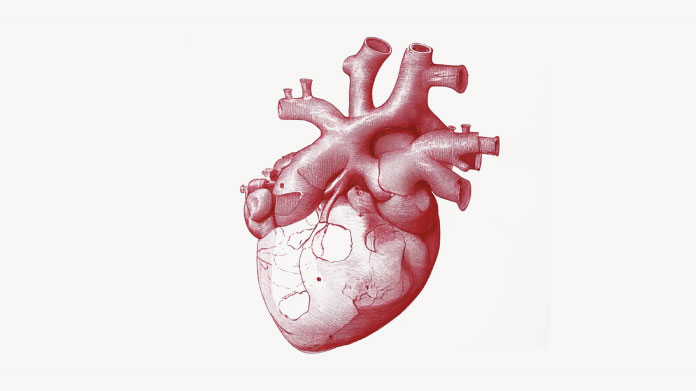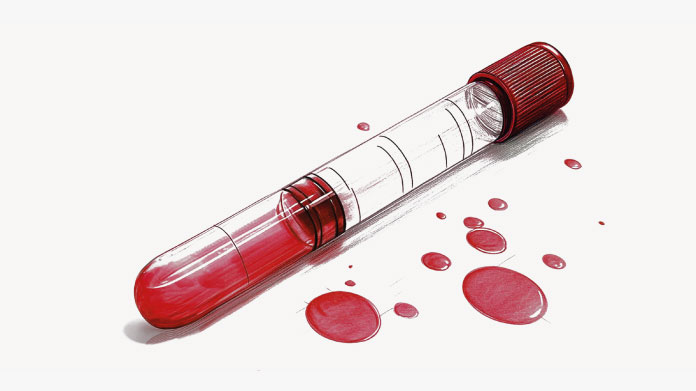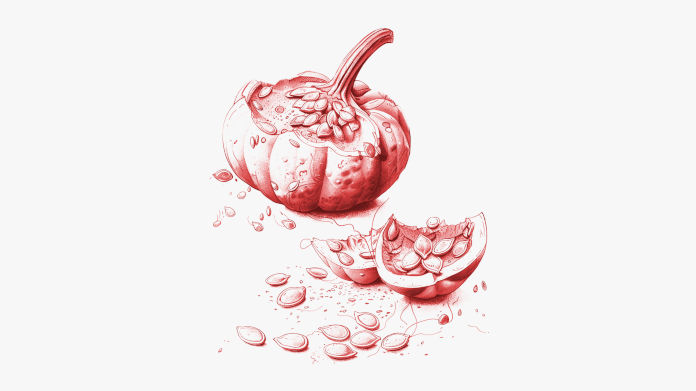Everything you need to know about good and bad cholesterol!
Some explanation is needed then to clarify exactly what is meant by cholesterol, hypercholesterolaemia, ‘good’ and ‘bad’ cholesterol and a cholesterol-lowering diet.

What exactly is cholesterol?
Before we get onto the difference between ‘good’ and ‘bad’ cholesterol, it’s worth restating the definition of cholesterol. As its name suggests, it is a sterol! In other words, cholesterol is a lipid, a macronutrient which the body needs to ensure certain essential functions. For example, cholesterol forms part of the composition of cell membranes, it is involved in synthesising bile salts essential for lipid digestion and it acts as a precursor in the production of several molecules. In particular, cholesterol plays a part in the synthesis of vitamins and hormones: vitamin D, cortisol, progesterone, male reproductive hormone …
What is hypercholesterolaemia?
While cholesterol is essential for a number of the body’s functions, excessive levels present risks to health. This is what specialists term hypercholesterolaemia, a metabolic disorder and one of the leading risk factors for cardiovascular disease. In excess, cholesterol accumulates on artery walls leading to the formation of fatty plaques called atheroma. Known as atherosclerosis, this generally manifests in hypertension and can result in serious health complications including stroke and heart attack …
How are ‘good’ and ‘bad cholesterol defined?
You’ve no doubt heard of ‘good fats’ and ‘bad fats’, which are distinguished by their chemical structure. You might imagine that it’s the same for ‘good’ cholesterol and ‘bad’ cholesterol, yet the difference between them is of quite a different order. Contrary to common perception, they are in fact two transporters of cholesterol. Biochemically, they are described as lipoproteins – complexes of lipids and proteins which enable fats to be transported in the bloodstream. ‘Good’ cholesterol refers to high-density lipoprotein or HDL-cholesterol, while ‘bad’ cholesterol corresponds to low-density lipoprotein or LDL-cholesterol.
Why distinguish between the two?
Specialists advise us to distinguish between ‘good’ and ‘bad’ cholesterol as the latter promotes the accumulation of cholesterol in the blood, while the former enables it to be broken down in the liver. LDL-cholesterol is thus termed ‘bad’ because it transports cholesterol towards the body’s tissues, while HDL-cholesterol is ‘good’ because it carries it towards the liver where it is eliminated. A high level of ‘bad’ cholesterol is often symptomatic of a diet that’s too high in cholesterol, hypercholesterolaemia and increased risk of cardiovascular disease.
What is a cholesterol-lowering diet?
In the case of hypercholesterolaemia, doctors generally recommend adopting a cholesterol-lowering diet to reduce the risk of health problems. The top 10 anti-cholesterol foods include fish high in omega-3 fatty acids, pulses, and antioxidant-rich fruit and vegetables. In recent years, scientific research has also identified other natural anti-cholesterol products. Among them are red yeast rice, a traditional product from the Chinese pharmacopoeia which can lower levels of ‘bad’ cholesterol, and policosanol, a compound extracted from sugar cane which reduces total cholesterol levels via different mechanisms. Scientific research on ‘good’ and ‘bad’ cholesterol has also led to the formulation of Sytrinol™, a natural anti-cholesterol supplement the efficacy of which has been recognized by a number of clinical studies.
Keywords
18 Hours
First bottle has been finished
First bottle has been finished. 2 bottles remaining for 3 month time frame trial as recommended
CORCORAN Pamela
5 Days
repeat customer
recommended by my doctor. easy to create an account. Discounts and specials are appreciated. packaging and delivery is dependable. Capsules easy to digest. I've had some some capsules and tablets that are broken inside their bottles.
Kokee
10 Days
Order was shipped on time and packaged…Wonderful Jobs!
Order was shipped on time and packaged excellently.
DMHoge
16 Days
great products and prices
great products and prices
Marie
22 Days
Easy to navigate site
Easy to navigate site, had what I was searching for, good price. easy order-check out
James Tucker
28 Days
My skin is clearing up nicely!
Pretty good for my skin so far.
Christian
30 Days
The new packaging is excellent
The new packaging is excellent - finally! No more squashed boxes and torn envelopes.
GORAN
31 Days
Great Product
Great Product
Larry Garrett
35 Days
Quick shipping
Quick shipping; good price. No issues!
Mary McCarty
37 Days
Thr product is very good and is helping…
Thr product is very good and is helping me on my health. Then is always on time
LUGO Luz
39 Days
Buying was fine
Buying was fine. I had problems with the website not recognizing my login info, and had to call to get it fixed. Other than that, everything was good.
David S. Clark
40 Days
Your super maca and super ginseng are…phenomenal
Your super maca and super ginseng are phenomenal supplements that compliment each other when taking them together. Fantastic feeling of well-being and lots of mid day energy without the crash.
Keith Mason
42 Days
I have had amazing results with every…
I have had amazing results with every supplement I've purchased. I am extremely satisfied with this company
kirstin Torres
42 Days
Fine products
Fine products . They are on the leading edge of online supplements. The only issue -so far-is they sometime run out of subscription items.
Jason Argos
45 Days
The ordering process is very user…
The ordering process is very user friendly and the products always come in a timely manner.
CARTER Rhonda




